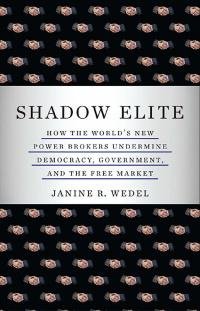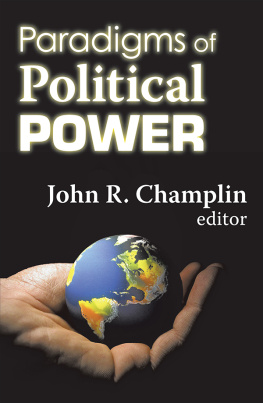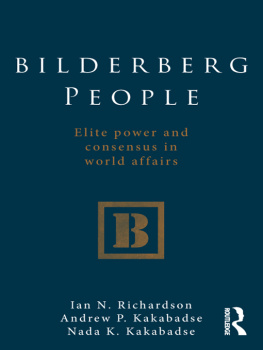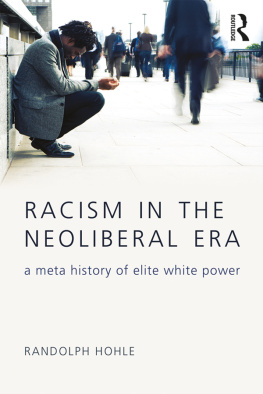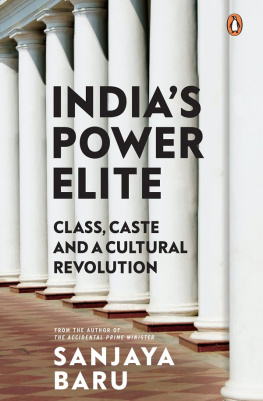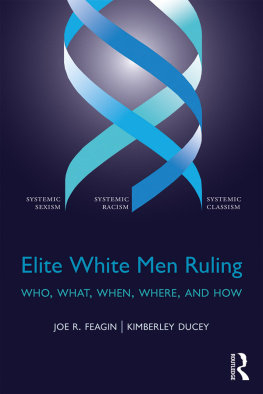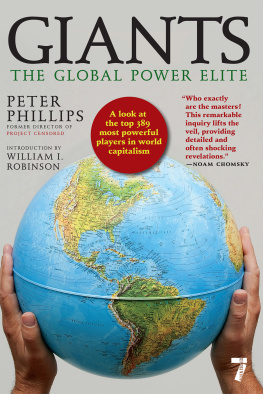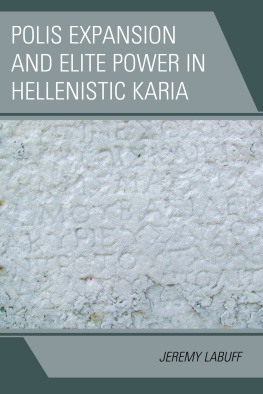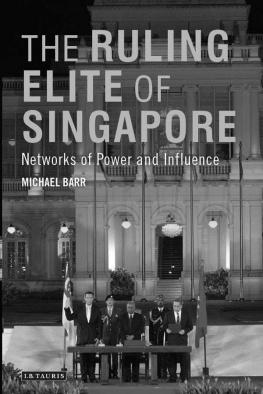THE POWER ELITE
THE POWER ELITE
C. WRIGHT MILLS
With a New Afterword by Alan Wolfe


Oxford New York
Athens Auckland Bangkok Bogot Buenos Aires Calcutta
Cape Town Chennai Dar es Salaam Delhi Florence Hong Kong Istanbul
Karachi Kuala Lumpur Madrid Melbourne Mexico City Mumbai
Nairobi Paris So Paulo Singapore Taipei Tokyo Toronto Warsaw
and associated companies in Berlin Ibadan
Copyright 1956, 2000 by Oxford University Press, Inc.
First published by Oxford University Press, New York, 1956.
First issued as an Oxford University Press paperback, 1959.
Afterword copyright 2000 by Alan Wolfe
Published by Oxford University Press, Inc.
198 Madison Avenue, New York, New York 10016
Oxford is a registered trademark of Oxford University Press.
All rights reserved. No part of this publication may be reproduced, stored in a retrieval system, or transmitted, in any form or by any means, electronic, mechanical, photocopying, recording, or otherwise, without the prior permission of Oxford University Press.
Library of Congress Cataloging-in-Publication Data Mills, C. Wright (Charles Wright), 19161962.
The power elite / C. Wright Mills; with a new afterword by Alan Wolfe.
p. cm.
Originally published: 1956.
Includes index.
ISBN-13 978-0-19-513354-7
1. Power (Social sciences) -- United States. 2. Elite (Social sciences) -- United States. 3. United States -- Social conditions -- 1945- I. Title.
HN90.P6 M55 1999
303.30973- dc21 99-16200
191817161514
Printed in the United States of America
Contents
THE POWER ELITE
1
The Higher Circles
THE powers of ordinary men are circumscribed by the everyday worlds in which they live, yet even in these rounds of job, family, and neighborhood they often seem driven by forces they can neither understand nor govern. Great changes are beyond their control, but affect their conduct and outlook none the less. The very framework of modern society confines them to projects not their own, but from every side, such changes now press upon the men and women of the mass society, who accordingly feel that they are without purpose in an epoch in which they are without power.
But not all men are in this sense ordinary. As the means of information and of power are centralized, some men come to occupy positions in American society from which they can look down upon, so to
The power elite is composed of men whose positions enable them to transcend the ordinary environments of ordinary men and women; they are in positions to make decisions having major consequences. Whether they do or do not make such decisions is less important than the fact that they do occupy such pivotal positions: their failure to act, their failure to make decisions, is itself an act that is often of greater consequence than the decisions they do make. For they are in command of the major hierarchies and organizations of modern society. They rule the big corporations. They run the machinery of the state and claim its prerogatives. They direct the military establishment. They occupy the strategic command posts of the social structure, in which are now centered the effective means of the power and the wealth and the celebrity which they enjoy.
The power elite are not solitary rulers. Advisers and consultants, spokesmen and opinion-makers are often the captains of their higher thought and decision. Immediately below the elite are the professional politicians of the middle levels of power, in the Congress and in the pressure groups, as well as among the new and old upper classes of town and city and region. Mingling with them, in curious ways which we shall explore, are those professional celebrities who live by being continually displayed but are never, so long as they remain celebrities, displayed enough. If such celebrities are not at the head of any dominating hierarchy, they do often have the power to distract the attention of the public or afford sensations to the masses, or, more directly, to gain the ear of those who do occupy positions of direct power. More or less unattached, as critics of morality and technicians of power, as spokesmen of God and creators of mass sensibility, such celebrities and consultants are part of the immediate scene in which the drama of the elite is enacted. But that drama itself is centered in the command posts of the major institutional hierarchies.
The truth about the nature and the power of the elite is not some secret which men of affairs know but will not tell. Such men hold quite various theories about their own roles in the sequence of event and decision. Often they are uncertain about their roles, and even more often they allow their fears and their hopes to affect their assessment of their own power. No matter how great their actual power, they tend to be less acutely aware of it than of the resistances of others to its use. Moreover, most American men of affairs have learned well the rhetoric of public relations, in some cases even to the point of using it when they are alone, and thus coming to believe it. The personal awareness of the actors is only one of the several sources one must examine in order to understand the higher circles. Yet many who believe that there is no elite, or at any rate none of any consequence, rest their argument upon what men of affairs believe about themselves, or at least assert in public.
There is, however, another view: those who feel, even if vaguely, that a compact and powerful elite of great importance does now prevail in America often base that feeling upon the historical trend of our time. They have felt, for example, the domination of the military event, and from this they infer that generals and admirals, as well as other men of decision influenced by them, must be enormously powerful. They hear that the Congress has again abdicated to a handful of men decisions clearly related to the issue of war or peace. They know that the bomb was dropped over Japan in the name of the United States of America, although they were at no time consulted about the matter. They feel that they live in a time of big decisions; they know that they are not making any. Accordingly, as they consider the present as history, they infer that at its center, making decisions or failing to make them, there must be an elite of power.
On the one hand, those who share this feeling about big historical events assume that there is an elite and that its power is great. On the other hand, those who listen carefully to the reports of men apparently involved in the great decisions often do not believe that there is an elite whose powers are of decisive consequence.
Both views must be taken into account, but neither is adequate. The way to understand the power of the American elite lies neither solely in recognizing the historic scale of events nor in accepting the personal awareness reported by men of apparent decision. Behind such men and behind the events of history, linking the two, are the major institutions of modern society. These hierarchies of state and corporation and army constitute the means of power; as such they are now of a consequence not before equaled in human historyand at their summits, there are now those command posts of modern society which offer us the sociological key to an understanding of the role of the higher circles in America.
Within American society, major national power now resides in the economic, the political, and the military domains. Other institutions seem off to the side of modern history, and, on occasion, duly subordinated to these. No family is as directly powerful in national affairs as any major corporation; no church is as directly powerful in the external biographies of young men in America today as the military establishment; no college is as powerful in the shaping of momentous events as the National Security Council. Religious, educational, and family institutions are not autonomous centers of national power; on the contrary, these decentralized areas are increasingly shaped by the big three, in which developments of decisive and immediate consequence now occur.
Next page

